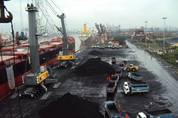
In direct contrast to the tanker market, the dry bulk one has seen demand for key commodities, such a coal, dwindling down over the course of the past year. With climate talks in Paris now in full swing, expectations are for a further squeeze on the consumption of “dirty fuels” and the improvement in energy efficiency and the promotion of use of cleaner energy technology.In its latest weekly report, shipbroker Allied Shipbroking noted that “the pressure, as in the past, is likely to be put mostly on the developing economies which rely more heavily on “dirty” fossil fuels to cover their increas
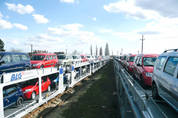
The delegation of BLG logistics group visited Korea. The Shippers’ Journal had a chance to interview Mr. Dreeke, the president CEO of BLG on 26th Nov. and asked some questions.Q What is the purpose of visit to Korea this time? Hyundai Glovis, a logistics arm of Hyundai and Kia Motros, is known to be one of the major customers for BLG. Do you still have good co-operative relationships with each other?Our purpose of visit to Korea this time is to meet our customers, EUKOR car carrier and of course Glovis. We have excellent relationship with both of them and closely work together.With Glovis, we
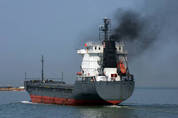
New data presented by researchers at Lund University and others in the journal Oceanologia shows that the air along the coasts is full of hazardous nanoparticles from ships, posing a greater threat to human health than previously thought.According to the research, almost half of the measured particles stem from sea traffic emissions, while the rest is deemed to be mainly from cars but also biomass combustion, industries and natural particles from the sea.“Nanoparticles can be hazardous to our health as they, because of their small size, can penetrate deeper into the lungs than larger particles
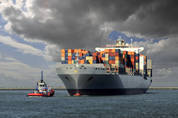
Shipping freight rates for transporting containers from ports in Asia to Northern Europe plunged by 27.9 percent to $295 per 20-foot container (TEU) in the week ending on Friday, one source with access to data from the Shanghai Containerized Freight Index told Reuters.The drop came after spot freight rates on the world’s busiest route dropped 39.3 percent last week, and the current rates are widely seen as loss-making levels for container shipping companies.The spot freight rates for transporting containers, carrying anything from flat-screen TVs to sportswear from Asia to Northern Europe, has
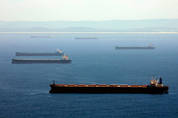
China’s mining and steel industries are facing tectonic shifts over the past couple of years, with the country’s limiting of coal use, falling steel demand both domestic and foreign and iron ore prices tumbling to near 7-year lows as of yesterday and well below $50/ton. As such, the persistence of mining giants to keep production levels up, is puzzling.In its latest report, shipbroker Cotzias Intermodal Shipping attempted to decode this puzzle, which is very important to the future prospects of the dry bulk shipping industry. According to the report, “four companies dominate global iron ore pr
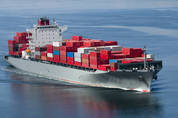
Shipments from Asia to the U.S. are reaching unprecedented levels, but the overcapacity of container vessels has sunk cargo fees, leaving shipping companies worried they might not profit from the uptick in activity.“We like to think current shipping rates have hit bottom, but…,” said a frustrated executive of a major Japanese marine transport company. Spot fees for shipments from Asia to the U.S. East Coast stand at about $2,400 per 40-foot container, 40% less than a year earlier. Shipments to the West Coast fetch around $1,400, down 30%. Both rates fall well below the shipping industry’s brea
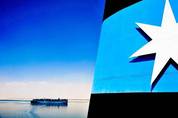
The world’s largest container shipping company, Maersk Line, plans to raise spot freight rates sharply on main routes from ports in Asia to ports in northern Europe with effect from Nov. 1, the company said on Tuesday.Spot rates for twenty foot equivalent unit containers (TEU) will rise by $1,000, Maersk Line wrote in a letter to customers.The planned price hike corresponds to a 429 percent increase from current levels if implemented successfully. Container rates typically rise in big jumps announced by the shipping companies before gradually easing back over time.According to the Shanghai Con
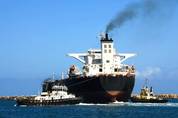
The global shipping industry is unlikely to meet an end-2016 deadline for setting targets and developing a plan to reduce its greenhouse gas emissions, Europe’s shipping industry lobby said on Friday.The European Commission this week called on the International Maritime Organization (IMO) to present measures to cut emissions by the end of 2016. The move is part of an EU pledge to cut 1990-level greenhouse gas emissions by 40 percent by 2030.“2016 is right around the corner and as such it is rather unrealistic to expect the IMO to come up with a solution in a matter of months,” Patrick Verhoeve
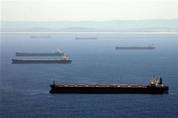
‘VWGate’ has raised a flag for managers and technicians in the transport business. ‘Efficiency’ used to be left to the market, but the intrepid twins, consumer health and climate change, have changed all that. Shipping boasted of being the most ‘efficient’ transport mode, but the twins took a look at what was coming out of the funnel and the rest is history (as is anyone not paying attention to emission regulations).The shipping industry has been squeezing diesel technology for fifty years and faces similar problems to the VW engine designers. The technical cupboard appears fairly empty, so th
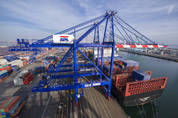
The era of global slow-steaming by container lines could be about to end with the recent announcement of improved transit times on select services.APL today announced the launch of its Eagle Express weekly transpacific service, which will offer a 13-day transit from Shanghai to Los Angeles.APL president Kenneth Glenn said “We are committed to adding robustness to the supply chains of our customers. Whether it is shipment to the US west coast or its inland destinations, time-sensitive shippers can now take advantage of superior transit times and on-time assurance.”The service calls at APL’s Los